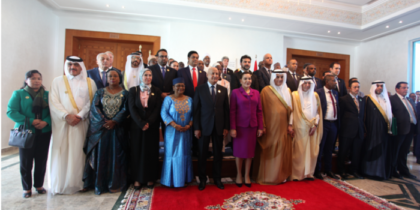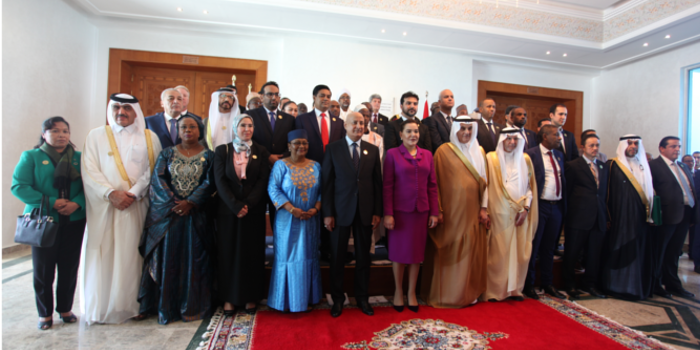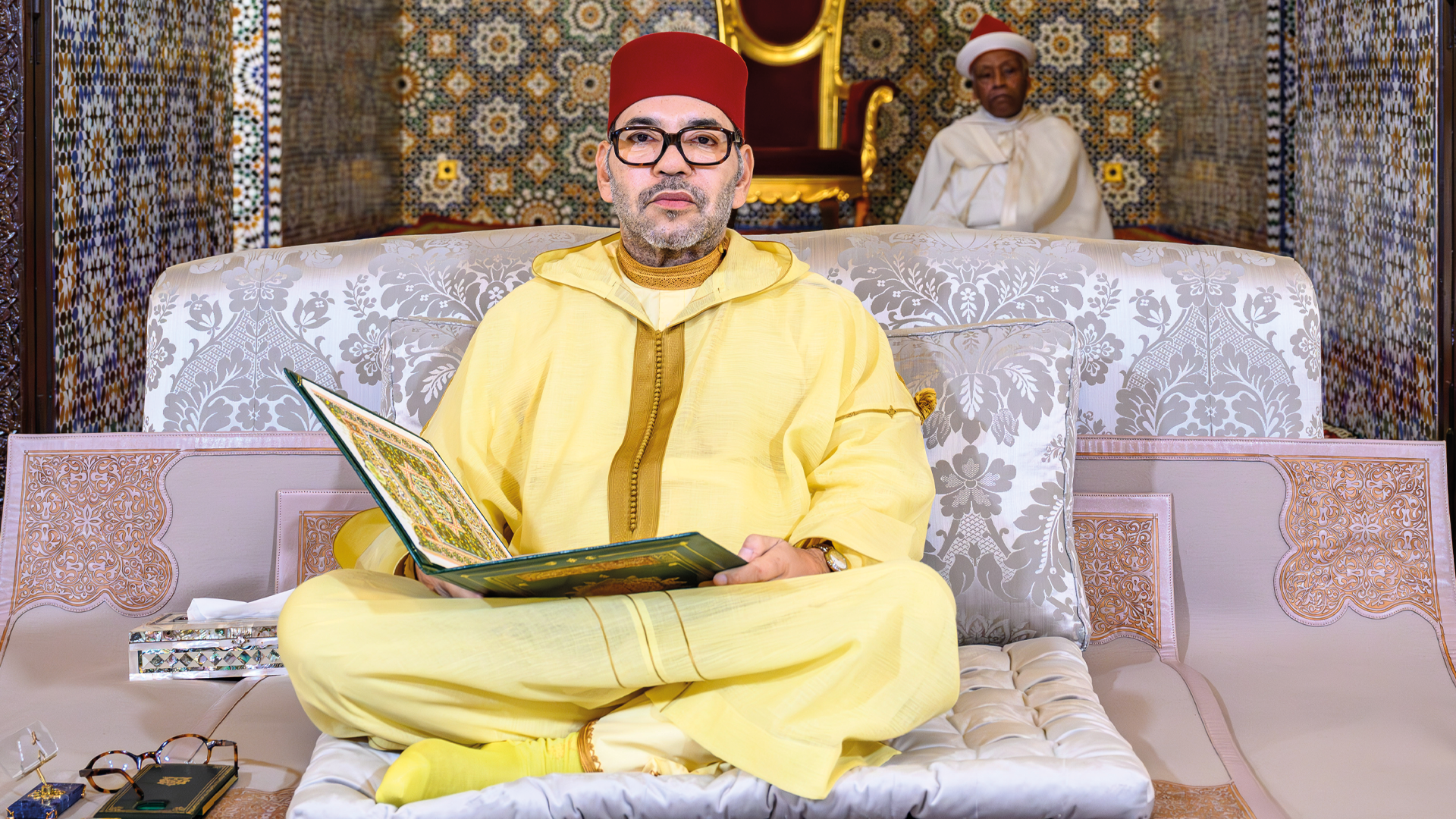 The two-day 7th Islamic Conference of environment ministers (ICEM), held in Rabat on Wednesday, adopted the draft Rabat Declaration on Environment Protection and Achieving Sustainable Development Goals, which calls on member states of the Organization of Islamic Cooperation to commit to supporting the international agenda for sustainable development, in accordance with the regionally and internationally agreed principles and instruments.
The two-day 7th Islamic Conference of environment ministers (ICEM), held in Rabat on Wednesday, adopted the draft Rabat Declaration on Environment Protection and Achieving Sustainable Development Goals, which calls on member states of the Organization of Islamic Cooperation to commit to supporting the international agenda for sustainable development, in accordance with the regionally and internationally agreed principles and instruments.
The Declaration calls in this vein for channeling all national and international efforts into sustainable development, for honoring the financial and technical commitments, and for establishing national structures for sustainable development or strengthening those existing in every Member State.
The text also emphasizes the necessity to activate the recommendations of the Paris and Marrakesh Conferences of the Parties on climate change, particularly regarding the support funds as part of North-South solidarity to address the effects of this phenomenon. They likewise underscored the need for developed countries to assume their environmental responsibilities, take resolute measures in accordance with the UN Framework Convention on Climate Change and its Kyoto Protocol, and pay more attention to the degradation of biodiversity and natural habitat around the world.
The participants announced the adoption of the “Guidance Document on Green Cities and their Role in Achieving Sustainable Development Goals” and the launch of the “Program for the Celebration of Islamic Capitals of the Environment and Sustainable Development” to be supervised by ISESCO.
The opening session of the event highlighted by the reading out of a message addressed by King Mohammed VI to the conference.
In the message that was read out by the King’s youngest sister and Chairwoman of the Mohammed VI Foundation for Environment Protection Princess Lalla Hasnaa, the Moroccan Sovereign underlined the imperative need to develop sustainable mechanisms and to take effective measures to address the issue of climate change. Climate change poses a real threat to all countries across the globe, including Muslim nations and impacts directly a number of vital sectors, such as agriculture, transport, water and natural resources, he stated.
The King also called for considering the setting up of a carbon credit exchange regime for Islamic countries, similar to other international markets, like that of the European Union.
At the closing session, the 7th ICEM adopted a report on the progress made regarding the Morocco-proposed creation of the Islamic Academy for the Environment and Sustainable Development and commended Morocco for its tireless efforts to bring the project into being.
To materialize the academy idea, floated by Morocco in 2008, King Mohammed VI suggested in his address to the 7th ICEM that Morocco hosts the Academy and its bodies. To this effect, he announced having allocated a plot of land in Rabat to construct the Academy, pointing out that the Academy facilities will be consistent with green building design and construction standards.
“I am confident that the creation of this Academy will enhance the capacities of Member States of the Organization of Islamic Cooperation (OIC) and help them attain the Sustainable Development Goals within the agreed timeframe, which is before 2030,” he said.
On the sidelines of the ministerial conference, the Mohammed VI Foundation for Environment Protection and the ISESCO signed a cooperation program to shore up sustainable development pedagogical programs, covering the 2018-2019 period.
Under the program, ISESCO commits to support the Foundation in all countries in which it operates to share its expertise in coasts management, air quality and sustainable development education.
This partnership helped organize three training and awareness-raising seminars. The first was held in May in Casablanca to train young journalists on e-learning, the second in Amman (Jordan) in July on responsible tourism and the third in Dakar, in September, on pedagogical tools to serve sustainable development education.



